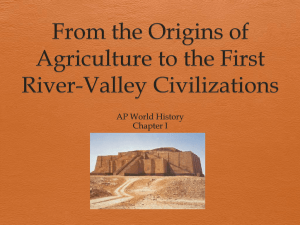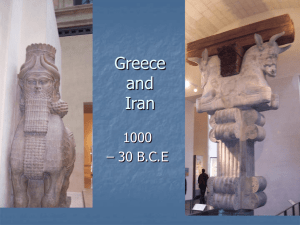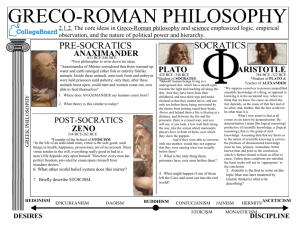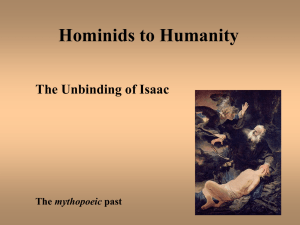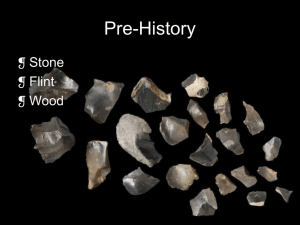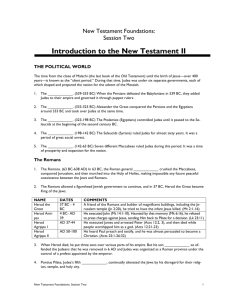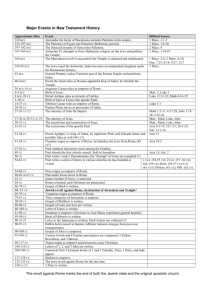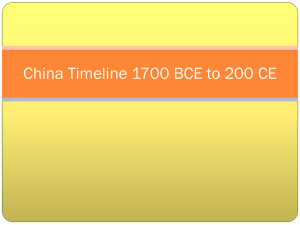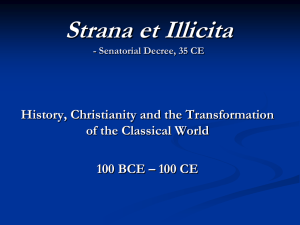lecture outline
advertisement
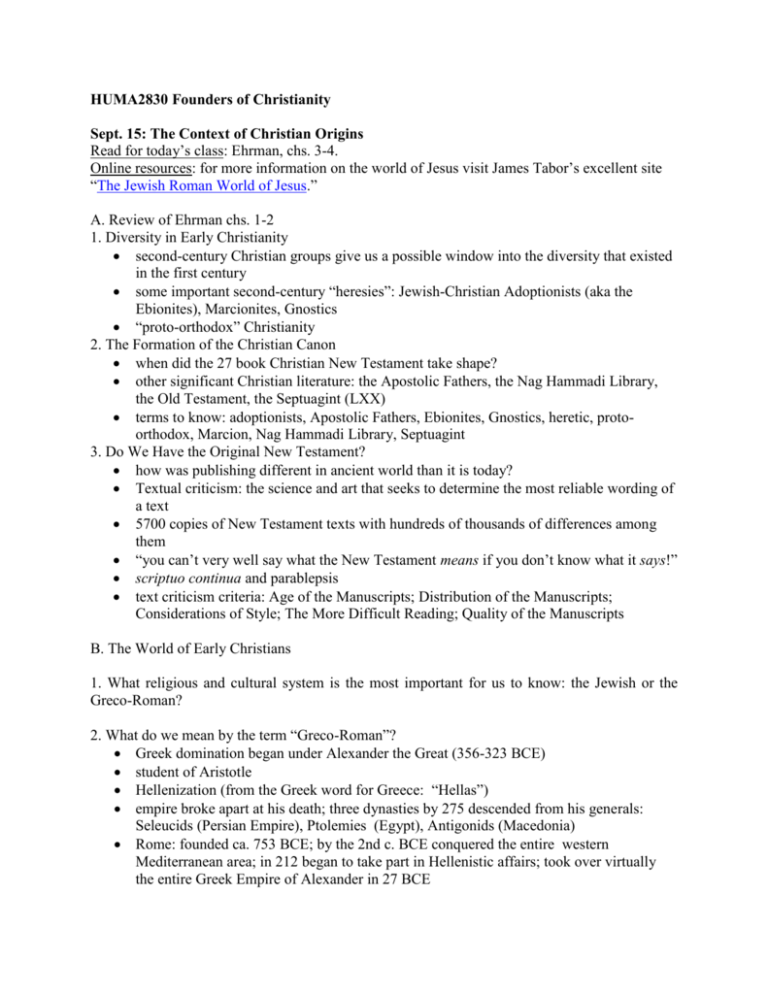
HUMA2830 Founders of Christianity Sept. 15: The Context of Christian Origins Read for today’s class: Ehrman, chs. 3-4. Online resources: for more information on the world of Jesus visit James Tabor’s excellent site “The Jewish Roman World of Jesus.” A. Review of Ehrman chs. 1-2 1. Diversity in Early Christianity second-century Christian groups give us a possible window into the diversity that existed in the first century some important second-century “heresies”: Jewish-Christian Adoptionists (aka the Ebionites), Marcionites, Gnostics “proto-orthodox” Christianity 2. The Formation of the Christian Canon when did the 27 book Christian New Testament take shape? other significant Christian literature: the Apostolic Fathers, the Nag Hammadi Library, the Old Testament, the Septuagint (LXX) terms to know: adoptionists, Apostolic Fathers, Ebionites, Gnostics, heretic, protoorthodox, Marcion, Nag Hammadi Library, Septuagint 3. Do We Have the Original New Testament? how was publishing different in ancient world than it is today? Textual criticism: the science and art that seeks to determine the most reliable wording of a text 5700 copies of New Testament texts with hundreds of thousands of differences among them “you can’t very well say what the New Testament means if you don’t know what it says!” scriptuo continua and parablepsis text criticism criteria: Age of the Manuscripts; Distribution of the Manuscripts; Considerations of Style; The More Difficult Reading; Quality of the Manuscripts B. The World of Early Christians 1. What religious and cultural system is the most important for us to know: the Jewish or the Greco-Roman? 2. What do we mean by the term “Greco-Roman”? Greek domination began under Alexander the Great (356-323 BCE) student of Aristotle Hellenization (from the Greek word for Greece: “Hellas”) empire broke apart at his death; three dynasties by 275 descended from his generals: Seleucids (Persian Empire), Ptolemies (Egypt), Antigonids (Macedonia) Rome: founded ca. 753 BCE; by the 2nd c. BCE conquered the entire western Mediterranean area; in 212 began to take part in Hellenistic affairs; took over virtually the entire Greek Empire of Alexander in 27 BCE assimilated its religious system to the Greek system Seleucid king Antiochus Epiphanes IV forces Hellenism upon Jews in the second century BCE Maccabean Revolt 165 BCE; Judea under Hasmonean rule until 63 BCE 3. What do we mean by the geographical term “Palestine”? other names: Israel, Ephrem, Judah, Judea, and with different geographical limits Roman term: “land of the Philistines” important locations in Palestine: Galilee (“land of the Gentiles”), Sepphoris, the Decapolis, Judea, Samaria 4. Judaism as a Religious System. monotheism (related concepts: one Temple to one God; aniconic) covenant/law (related concepts: circumcision, dietary laws, Sabbath, purification; messiah= “the anointed one”; King David [ca. 1004-963]) repentance, punishment and forgiveness 5. The Greco-Roman Religious System. polytheism the pyramid of power important distinctions with Judaism: animal sacrifice, “idolatry,” syncretism changes in the Hellenistic Period 6. Palestine in the Time of Jesus Judea taken over by Rome in 63 BCE Herod the Great (reigned 40-4 BCE) after Herod’s death, Judea split into three regions and ruled by Herod’s three sons: Galilee ruled by Herod Antipas Gentile regions to the East ruled by the Jews given to Philip Judea, the southern region was ruled briefly by Archelaus but soon placed under direct Roman administration; administrators known as prefects (e.g., Pilate) messianic rebellions and apocalyptic prophets (Theudas and the “Egyptian”) Josephus on Pontius Pilate Gaius Caligula and the statue controversy (40 CE) Jewish War 66-70 CE Jewish Sects: Pharisees, Sadducees, Essenes, “Fourth philosophy” (Zealots) terms to know: Alexander the Great, Appolonius of Tyana, Caesar Augustus, divination, Hellenization, Isis, mystery cults, monotheism, polytheism, pagan, Stoics, Antiochus Epiphanes, covenant, Dead Sea Scrolls, Diaspora, Essenes, fourth philosophy, hasmoneans, Herod the Great, Josephus, Judas Maccabeus, messiah, Pharisees, Wumran, Sadducees, synagogue, Zealots, David

